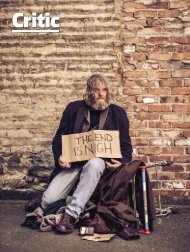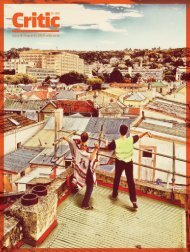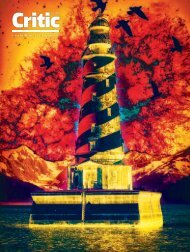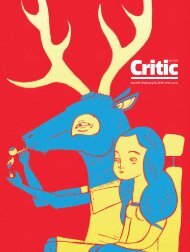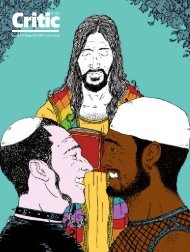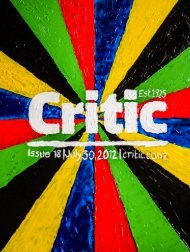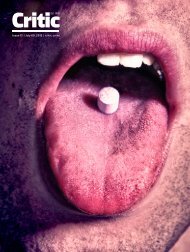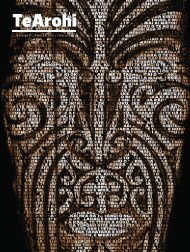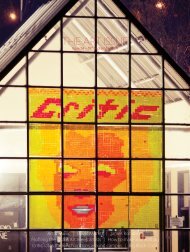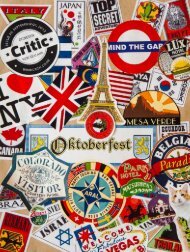BOY - Critic
BOY - Critic
BOY - Critic
Create successful ePaper yourself
Turn your PDF publications into a flip-book with our unique Google optimized e-Paper software.
The New Yorker’s George Packer calls him “super-secretive, thin-skinned, [and] megaloma-<br />
niacal.” Sarah Palin claims he’s “an anti-American operative with blood on his hands” whom we<br />
should pursue “with the same urgency we pursue al Qaeda and Taliban leaders.” Meanwhile, he is<br />
the darling of left-leaning believers everywhere, revered for democratizing the media. Whether<br />
his actions are to be encouraged or vilified, one thing’s for sure: Julian Assange and Wikileaks<br />
have had a huge impact. CHARLOTTE GREENFIELD reports on the effects of the Wikileaks, from<br />
alleged security threats, to how the leaks might change politics.<br />
Last year a political storm appeared on the horizon of journalism<br />
thanks to the work of three newspapers, one website, an unidentifiable<br />
number of hackers and leakers, and a man with eerily snow-white hair.<br />
Julian Assange, the public face of Wikileaks, is not by any means the<br />
first to leak information that scandalised the world. Even the name of<br />
Wikileaks’ most recent initiative - ‘Cablegate’ – is a reference to one of<br />
the most famous leaks in history. In 1972 reporters Bob Woodward and<br />
Carl Bernstein uncovered the White House’s cover-up of an attempted<br />
break in at the opposing Democratic Party’s headquarters. President<br />
Nixon was forced to resign and, as noted by the film Frost/Nixon, “his<br />
most lasting legacy is that today any political wrong doing is immediately<br />
given the suffix ‘-gate’.”<br />
The first Wikileak had a very different beginning. It all started with<br />
Kenya. In 2007 Wikileaks released a secret report detailing corruption<br />
by the former President, Arap Moi. The subsequent President, Mwai<br />
Kibaki, had commissioned the report in 2004 to gain leverage over<br />
Moi but the two were now working in coalition and the report became<br />
<strong>Critic</strong> 01 21<br />
Wikileaks Features<br />
Wikileaks;<br />
Freedom, Law and Politics<br />
“the holy grail of Kenyan journalism” with no chance of its release. That<br />
is, until Julian Assange’s sources managed to provide Wikileaks with a<br />
copy which they handed on to The Guardian. The result, says Assange,<br />
“changed the result of the election.” “So your leak substantially<br />
changed the world,” prompted a sympathetic interviewer. Assange<br />
responded with a smirking nod.<br />
This leak did change the world, very much so for the citizens of<br />
Kenya. However Assange conveniently fails to add that the result of<br />
that election was violence and ethnic purges throughout Kenya, leaving<br />
nearly 1000 dead. Political tension had existed in Kenya for years and<br />
the leak cannot be blamed for such a result. But it does demonstrate<br />
that even Assange, who pushes bolshily for transparency, must choose<br />
what to omit, what to leave unsaid or unleaked.<br />
Over the following three years, Wikileaks continued leaking but<br />
began to shift its focus to encompass the West. This was consolidated<br />
with a vengeance in 2010, the year Wikileaks forced itself into the<br />
limelight on an exceptional scale. First came a US Defense Depart-



